Wiltshire Horn sheep have a short fleece that naturally sheds in the spring, meaning that this season’s shearer shortage hasn’t impacted at all on keepers of this straightforward breed renowned for its tasty meat

FOR MANY years, much of the sheep shearing in the UK has been undertaken by shearers travelling every year from New Zealand and Australia, following the seasons and going where the work was, writes Paul McAvoy, secretary of the Wiltshire Horn Sheep Society.
Only this year, of course, that travel wasn’t possible during lockdown. At a time when most of this country’s sheep needed their annual clip, there was a shortage of shearers. Some people have always clipped their own sheep, so therefore they didn’t have a problem, but others have been struggling and have had to get their flocks shorn as best they could.
Despite this being an extraordinary year, for those of us who keep Wiltshire Horn sheep, this shortage of shearers hasn’t been an issue.
We don’t shear. Ever.
Even in a normal year when smallholders with just a few sheep are hanging on for the shearer to get the big flocks shorn, so that they can be ‘fitted in’, the keepers of Wiltshire Horn sheep simply don’t have any of these concerns. Wiltshire Horn sheep have a short fleece that naturally sheds in the spring leaving a smooth hair coat. The coarse fleece will then grow again in the autumn to offer protection during the colder winter months.
This short, self-shedding coat has many advantages. It means that there’s no need for dagging or crutching (trimming soiled wool off reluctant sheeps’ bottoms). The chances of fly strike are naturally greatly reduced. Without a heavy fleece to increase their bulk, Wiltshire Horn sheep rarely get rigged (accidentally and dangerously stuck on their backs).

At lambing time it’s far easier for new-born lambs to find their way to the teat without all that wool in the way.
The survival of the Wiltshire Horn sheep through all the years when wool fetched premium prices is really down to its qualities as a meat sheep. The breed produces fabulously full flavoured meat for which there’s always a healthy demand. Lambs have the ability to grow to heavy weights without putting on excess fat and are able to finish off on grass. The exceptional meat quality is ideally suited to the niche market outlets used by smallholders, such as farmers’ markets and farm gate sales.
On top of all these unique qualities, the breed really does lamb easily, the ewes being large framed and good milky mothers which produce vigorous lambs that are ready to get up and go. As a friend of mine once said: “Why has no one ever told me about these sheep?”
If you’re interested in a native breed that doesn’t need all the maintenance that goes with wool and would like to know more about this traditional, no shearing sheep, there is an active and welcoming breed society.
This article first appeared in the Country Smallholding Magazine August 2020
